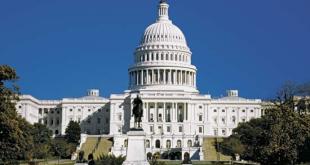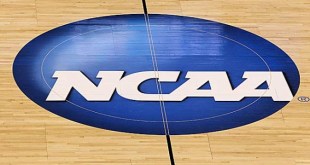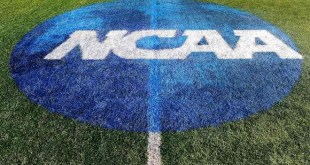It’s March, which can only mean one thing: college basketball is in the air. The 2017 NCAA Men’s Basketball Tournament will shortly capture the attention of millions across the nation. Blue Bloods, Cinderellas, and, of course, brackets will become the sole topics of discussion at office water coolers. Off the court, however, the NCAA has already engaged in a full court press of its own, aggressively policing its bevy of NCAA Tournament-related trademarks. This typically takes the form of actions against businesses attempting to profit on the NCAA’s most notable trademark, “March Madness,” but in an unusual twist, the NCAA has picked a fight with one of its own, the Big Ten Conference.
“March Madness” and the NCAA
The NCAA has not always owned the “March Madness” trademark. In fact, the NCAA wasn’t even the first to use the phrase. That credit actually goes to Henry V. Porter, an official with the Illinois High School Association (“IHSA”) who coined the refrain in a 1939 ode to the fans of his association’s own yearly basketball tournament. “When the March madness is on him, midnight jaunts of a hundred miles on successive nights make him even more alert the next day,” Porter wrote. In 1982, sportscaster Brent Musberger first used the phrase in its current collegiate context.
After the “March Madness” moniker took off in popularity, the NCAA and IHSA met in litigation in 1996, when the IHSA sued a video game developer that had taken a trademark license from NCAA to release a “March Madness” game. Both entities claimed exclusive right to use the mark. The United States Court of Appeals for the Seventh Circuit ultimately concluded that no matter how long IHSA had been using the name, it couldn’t control the phrase when used in conjunction with the annual college basketball tournament. In its ruling, however, the Court declined to grant either party an exclusive right to use the mark, but instead labeled “March Madness” a “dual-use term” in which each could use the phrase for their own purposes.[i] Rather than having two companies own the same mark for related services, the NCAA and IHSA formed a joint entity called March Madness Athletic Association LLC – essentially an intellectual property holding company – which owns the trademark and licenses it out to companies for commercial use.
“March Is On!”
The NCAA has garnered a reputation for zealously protecting its “March Madness” trademark, along with its other registered marks related to the NCAA Tournament.[ii] Businesses considering offering NCAA Tournament-related promotions are often advised to carefully consider whether their proposed advertisements or contests could potentially infringe on the NCAA’s rights. Conservative voices caution against taking actions that could arguably imply an association with the NCAA’s annual event, particularly the use of the “March Madness” mark. While many business owners view the college basketball championship as an easy means by which to generate some additional foot traffic and sales, businesses must weigh the short-term benefits of a “March Madness” promotion against the costs of defending a claim against the litigious NCAA.
To be sure, the NCAA took the defense of its marks to new heights last month. About a year ago, the Big Ten Conference filed an intent-to-use application with the U.S. Patent and Trademark Office (“USPTO”) for the phrase “March Is On!” for a variety of services related to live sports, including “production and distribution of television programs relating to sports and sports entertainment.” The application was an “intent-to-use” application, meaning the mark had not yet been used in commerce. Nevertheless there does appear to be evidence that the Big Ten had intermittently used the slogan to promote its own men’s basketball conference tournament, which it annually holds in early March prior to the NCAA Tournament.
The USPTO reviewed the application and found “no conflicting marks that would bar registration” under the Lanham Act. Accordingly, the “March Is On!” mark was published for opposition.[iii] The NCAA received extensions of time to oppose the application, presumably for the purpose of exploring a possible resolution with the Big Ten or at least finding out more about how the Big Ten intended to use the phrase. Last month, however, the clock ran out on any further extensions of time, and the NCAA proceeded to file a Notice of Opposition to the proposed “March Is On!” mark with the USPTO’s Trademark Trial and Appeal Board (“TTAB”).
In its Opposition, the NCAA argues that it has spent significant sums advertising and promoting its “March Madness” mark throughout the United States and has sold millions of dollars worth of goods and services in connection with its mark. As such, the NCAA claims that the Big Ten’s use of the “March Is On!” slogan will harm the NCAA’s ownership rights in its “March Madness” mark. The Notice of Opposition, however, does not include much detail in support of its claimed harm:
Use by [Big Ten Conference] of MARCH IS ON! for the services set forth in the Application is likely to result in confusion, mistake, or deception with [NCAA], or the goods and services marketed in connection with [NCAA]’s MARCH MADNESS Mark, or in the belief that [Big Ten Conference] or its MARCH IS ON! Services are in some way legitimately connected with, or licensed or approved by, [NCAA].
In essence, the NCAA alleges that consumers are likely to confuse the Big Ten’s “March Is On!” mark with the NCAA’s “March Madness” mark in connection with its offering of similar goods and services. It should be easy to establish that the services are related (e.g., for commercial use related to presentation of athletic contests), but the only basis for the alleged confusion between the two marks would appear to be the shared use of the word “March.” Sharing a single term can be sufficient to establish a likelihood of confusion in some circumstances, but confusion may be avoided if the shared term is descriptive of the services or weak in some other way. March, of course, describes the month in which both the NCAA Tournament and Big Ten Conference basketball tournament occur. If “March” deemed to be a weak or merely descriptive term, it seems likely that the Big Ten will succeed in swatting the NCAA’s Opposition into the stands.
But don’t expect the NCAA to go down without a fight. Other factors a court may consider in determining whether there is a likelihood of confusion include the similarity of trade channels and strength of the competing trademark. Under a “similarity of trade channels” analysis, a court asks whether the average consumer is likely to be confused by similar marks applied to similar products or services. With both the “March Madness” and “March Is On!” marks centered around related college basketball tournaments and aimed towards largely overlapping consumer bases, the NCAA has a good argument that there exists similarity in trade channels. Furthermore, courts also consider the relative fame of competing trademarks, and the NCAA’s “March Madness” trademark is one of the most famous in all of sports. As such, it’s possible that the TTAB could conclude that these factors tip the balance in favor of the NCAA and deny the Big Ten’s trademark application for “March Is On!” – ultimately granting the NCAA expansive rights to exclude others from using the word “March” in conjunction with basketball tournaments or even potentially in connection with all sorts of other sports-related entertainment services.
Conclusion
It certainly seems odd for the NCAA to be engaging in such a public dispute with one of its own member conferences, but the association has never been one to shy away from controversy. The novel case also presents the NCAA an opportunity to test the limits of its own trademark rights. Unless the still pending case settles – something the two parties have presumably been unable to accomplish for over a year now – we may soon find out just how far the NCAA’s rights stretch. It’s often maddening trying to predict how the TTAB will rule in any given case, but as March descends upon us, a bracket-busting outcome is always possible.
[i] Illinois High School Ass’n v. GTE Vantage Inc., 99 F.3d 244 (7th Cir. 1996).
[ii] Other NCAA-registered marks include “March Mayhem,” “Elite Eight,” “Final Four,” “And Then There Were Four,” and even “J.J. Jumper,” which is apparently the name of the NCAA’s official mascot. The phrase “Sweet Sixteen,” however, is notably absent. Like “March Madness,” it was used by a state high school group, the Kentucky High School Athletic Association, for its own basketball tournament long before the NCAA adopted it. The KHSAA owns the mark and licenses it to the NCAA.
[iii] This is a standard part of obtaining a trademark registration. Once a mark has been approved by the USPTO, it is published in a weekly publication called the Official Gazette. After this publication, the public has thirty days to file an opposition.
 The Sports Esquires Putting Sports on Trial
The Sports Esquires Putting Sports on Trial





One comment
Pingback: Sports Law Links - The Sports Esquires